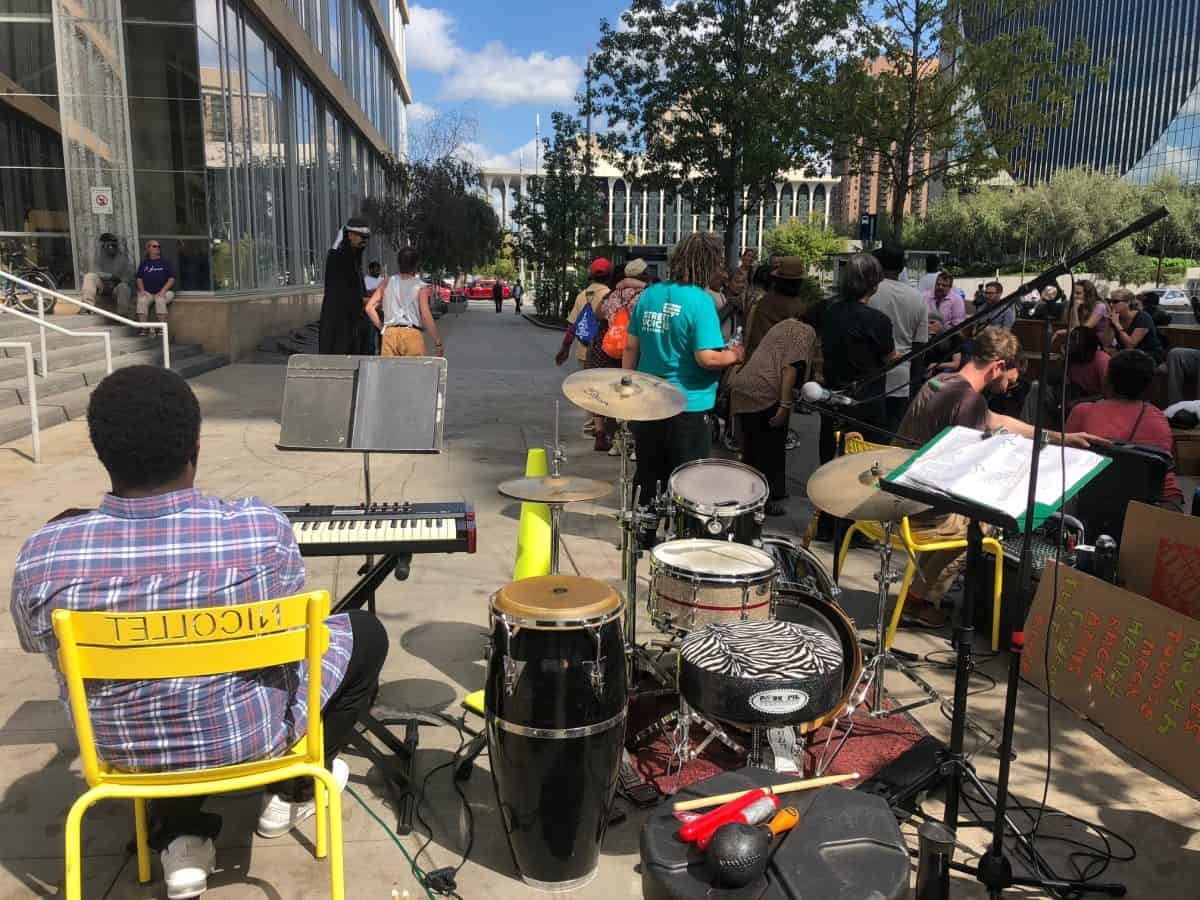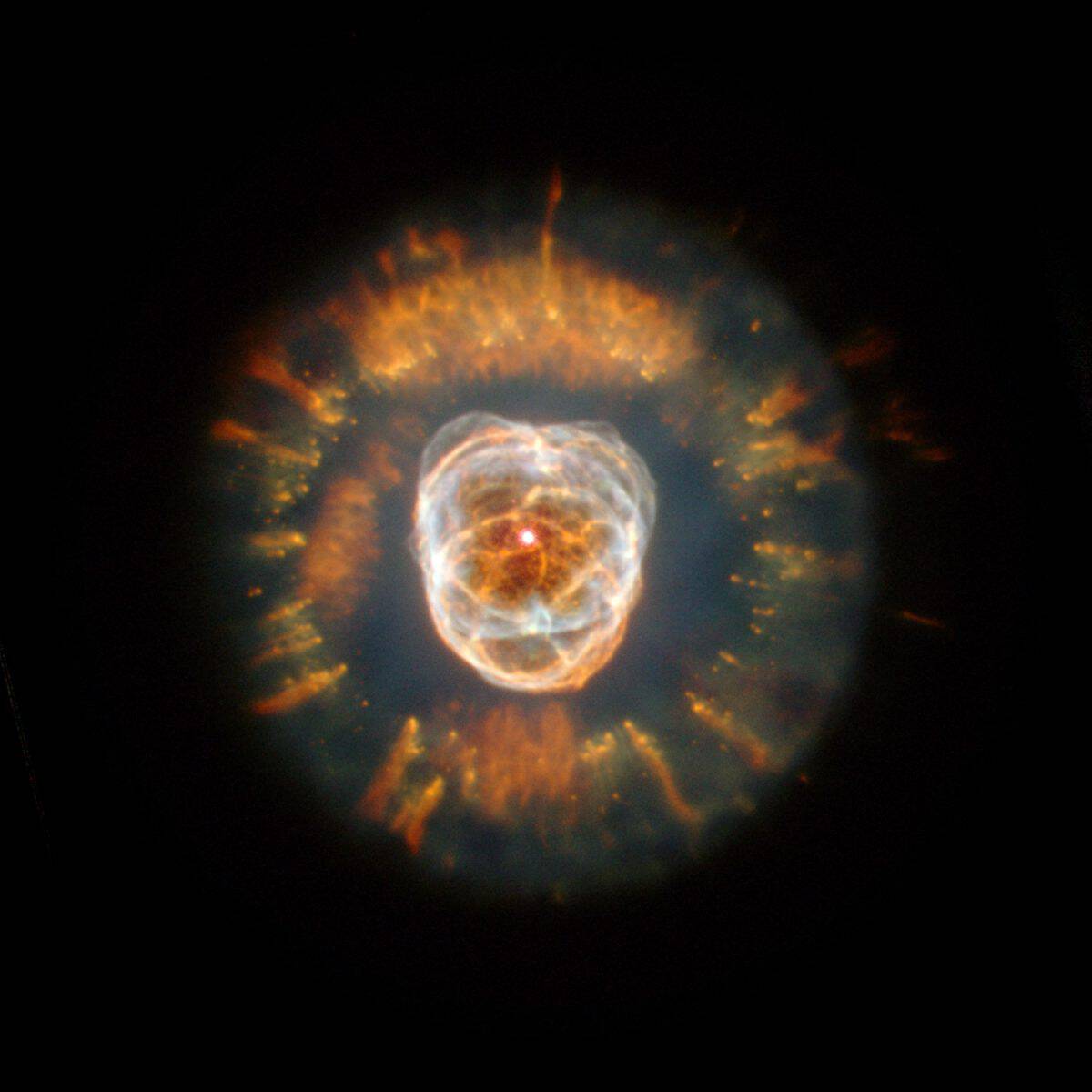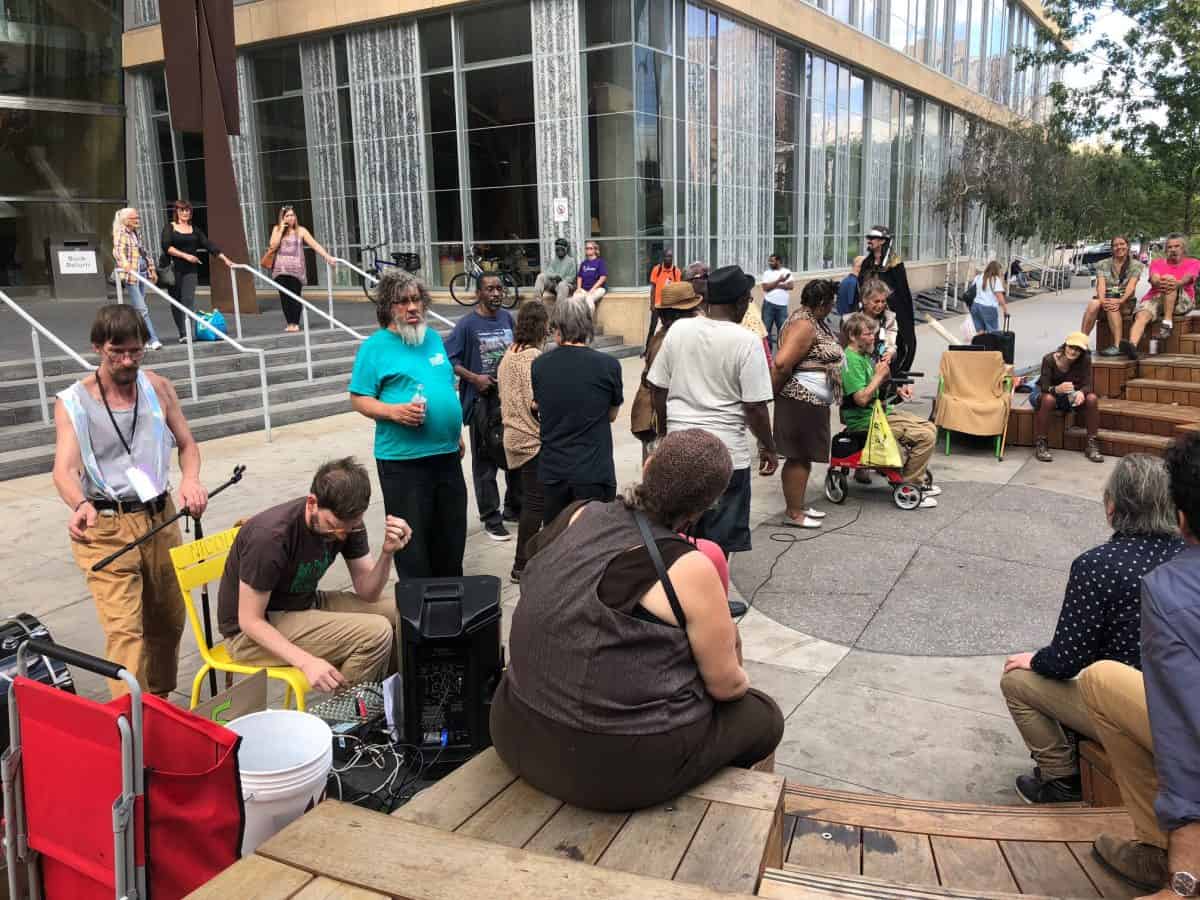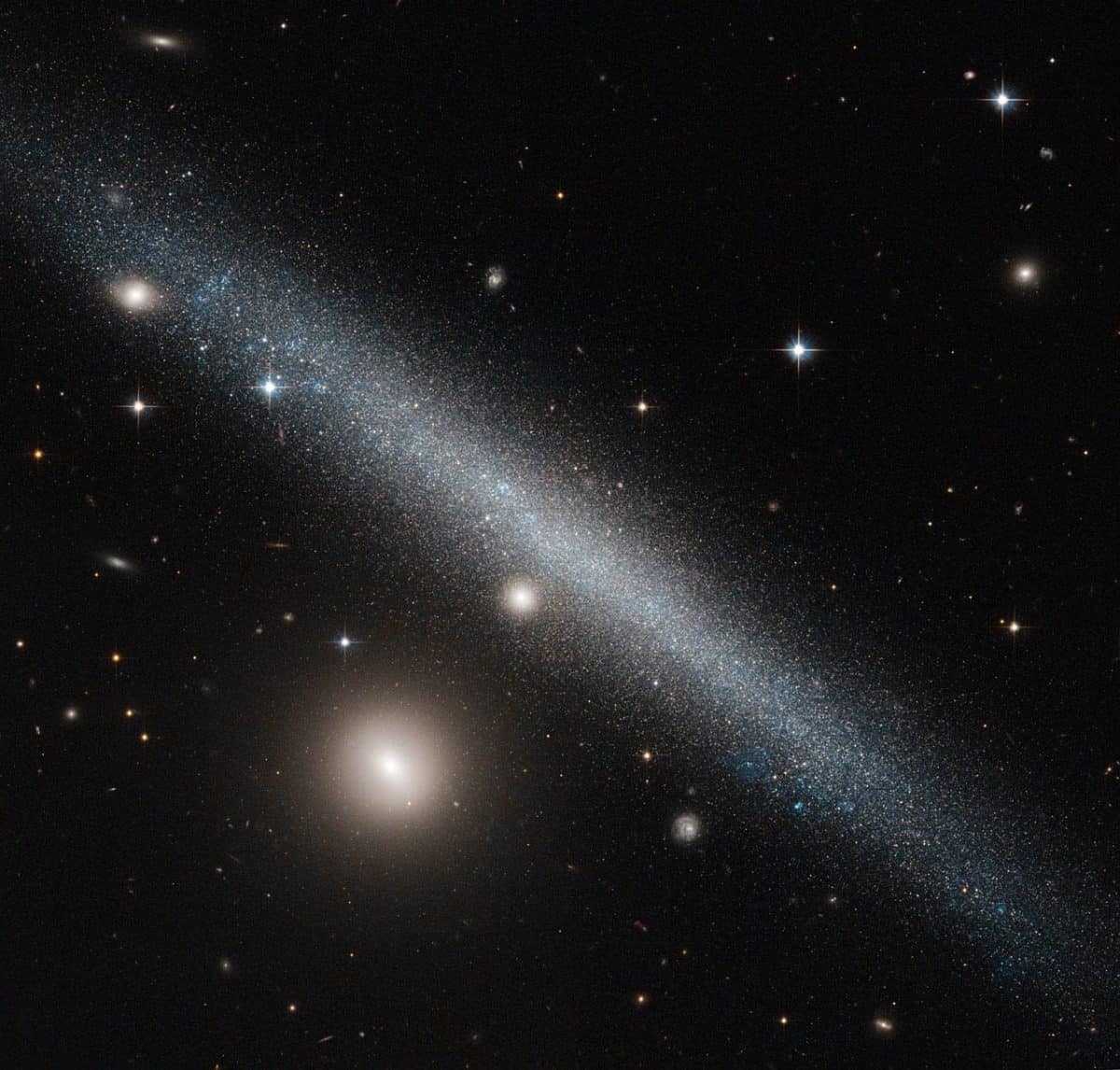Blog
What’s happened to our Sun? Nothing very unusual — it just threw a filament. Toward the middle of 2012, a long standing solar filament suddenly erupted into space producing an energetic Coronal Mass Ejection (CME). The filament had been held up for days by the Sun’s ever changing magnetic field and the timing of the eruption was unexpected. Watched closely by the Sun-orbiting Solar Dynamics Observatory, the resulting explosion shot electrons and ions into the Solar System, some of which arrived at Earth three days later and impacted Earth’s magnetosphere, causing visible aurorae. Loops of plasma surrounding an active regioncan be seen above the erupting filament in the featured ultraviolet image. Although the Sun is now in a relatively inactive state of its 11-year cycle, unexpected holes have opened in the Sun’s corona allowing an excess of charged particles to stream into space. As before, these charged particles are creating auroras.
The Sun is a G-type main-sequence star (G2V) based on its spectral class. As such, it is informally and not completely accurately referred to as a yellow dwarf (its light is closer to white than yellow). It formed approximately 4.6 billion[a][10][19] years ago from the gravitational collapse of matter within a region of a large molecular cloud. Most of this matter gathered in the center, whereas the rest flattened into an orbiting disk that became the Solar System. The central mass became so hot and dense that it eventually initiated nuclear fusion in its core. It is thought that almost all stars form by this process.
The Sun is roughly middle-aged; it has not changed dramatically for more than four billion[a] years, and will remain fairly stable for more than another five billion years. It currently fuses about 600 million tons of hydrogen into helium every second, converting 4 million tons of matter into energy every second as a result. This energy, which can take between 10,000 and 170,000 years to escape from its core, is the source of the Sun’s light and heat. In about 5 billion years, when hydrogen fusion in its core has diminished to the point at which the Sun is no longer in hydrostatic equilibrium, the core of the Sun will experience a marked increase in density and temperature while its outer layers expand to eventually become a red giant.
more...Riley B. King (September 16, 1925 – May 14, 2015), known professionally as B.B. King, was an American blues singer, electric guitarist, songwriter, and record producer. King introduced a sophisticated style of soloing based on fluid string bending and shimmering vibrato that influenced many later electric blues guitarists.
King was inducted into the Rock and Roll Hall of Fame in 1987, and is considered one of the most influential blues musicians of all time, earning the nickname “The King of the Blues”, and is considered one of the “Three Kings of the Blues Guitar” (along with Albert and Freddie King). King was known for performing tirelessly throughout his musical career, appearing on average at more than 200 concerts per year into his 70s. In 1956 alone, he reportedly appeared at 342 shows.
King was born on a cotton plantation in Berclair, Mississippi, and later worked at a cotton gin in Indianola, Mississippi. He was attracted to music and the guitar in church, and began his career in juke joints and local radio. He later lived in Memphis, Tennessee, and Chicago, and toured the world extensively. King died at the age of 89 in Las Vegas, Nevada, on May 14, 2015.
In 1949, King began recording songs under contract with Los Angeles-based RPM Records. Many of King’s early recordings were produced by Sam Phillips, who later founded Sun Records. Before his RPM contract, King had debuted on Bullet Records by issuing the single, “Miss Martha King” (1949), which did not chart well. “My very first recordings [in 1949] were for a company out of Nashville called Bullet, the Bullet Record Transcription company,” King recalled. “I had horns that very first session. I had Phineas Newborn on piano; his father played drums, and his brother, Calvin, played guitar with me. I had Tuff Green on bass, Ben Branchon tenor sax, his brother, Thomas, on trumpet, and a lady trombone player. The Newborn family were the house band at the famous Plantation Inn in West Memphis.
more...Charlie Lee Byrd (September 16, 1925 – December 2, 1999) was an American guitarist. His earliest and strongest musical influence was Django Reinhardt, the gypsy guitarist. Byrd was best known for his association with Brazilian music, especially bossa nova. In 1962, Byrd collaborated with Stan Getz on the album Jazz Samba, a recording which brought bossa nova into the mainstream of North American music.
Byrd played fingerstyle on a classical guitar.
Charlie Byrd was born in Suffolk, Virginia, in 1925 and grew up in the town of Chuckatuck, Virginia. His father, a mandolinist and guitarist, taught him how to play the acoustic steel guitar at age 10. Byrd had three brothers, Oscar, Jack, and Joe, who was a bass player. In 1942 Byrd entered the Virginia Polytechnic Institute and played in the school orchestra. In 1943 he was drafted into the United States Army for World War II, saw combat, then was stationed in Paris in 1945 where he played in an Army Special Services band and toured occupied Europe in the all-soldier production G.I. Carmen.
In 1957 Byrd met double bassist Keter Betts in a Washington, D.C., club called the Vineyard. The two began doing gigs together, and by October they were frequently performing at a club called the Showboat. In 1959 the pair joined Woody Herman‘s band and toured Europe for three weeks as part of a State Department-sponsored goodwill tour. The other members of the band were Vince Guaraldi, Bill Harris, Nat Adderley and drummer Jimmy Campbell.[4] Byrd led his own groups that sometimes featured his brother Joe. Byrd was also active as a teacher in the late 1950s; he trained guitar students at his home in Washington, D.C., each required to audition before he agreed to be their teacher.
Byrd was introduced to Brazilian music by Felix Grant, a friend and radio host who had contacts in Brazil in the late 1950s, and who was well-known there by 1960 due to the efforts of Brazilian radio broadcaster Paulo Santos. Following a spring 1961 diplomatic tour of South America (including Brazil) for the State Department, Byrd returned home and met with Stan Getz at the Showboat Lounge. Byrd invited Getz back to his home to listen to some bossa nova recordings by João Gilberto and Antonio Carlos Jobim which he had brought back. Getz liked what he heard and the two decided that they wanted to make an album of the songs. The task of creating an authentic sound, however, proved much more challenging than either had anticipated.[5][6]
Getz convinced Creed Taylor at Verve Records to produce the album. Taylor and Byrd assembled a group of musicians they knew. These early sessions did not turn out to either man’s liking, so Byrd gathered a group of musicians that had been to Brazil with him previously and practiced with them in Washington, D.C. until he felt they were ready to record. The group included his brother Gene Byrd, as well as Keter Betts, Bill Reichenbach and Buddy Deppenschmidt. Reichenbach and Deppenschmidt were drummers, and the combination made it easier to achieve samba rhythm. Finally the group was deemed ready and Getz and Taylor arrived in Washington, D.C. on February 13, 1962. They recorded in a building adjacent to All Souls Unitarian Church because of the building’s excellent acoustics.[5]
Jazz Samba was released in April 1962, and by September it had entered the Billboard pop album chart. By March of the following year the album had moved to number one. The term “bossa nova” wasn’t used until later. The album remained on the charts for seventy weeks, and Getz soon beat John Coltrane in a Down Beat poll. One of the album’s most popular tunes was a Jobim hit, titled “Desafinado“.
more...Giuseppe “Joe” Venuti (September 16, 1903– August 14, 1978 Philadelphia, PA) was an Italian-American jazz musician and pioneer jazz violinist.
Considered the father of jazz violin, he pioneered the use of string instruments in jazz along with the guitarist Eddie Lang, a friend since childhood. Through the 1920s and early 1930s, Venuti and Lang made many recordings, as leader and as featured soloists. He and Lang became so well known for their ‘hot’ violin and guitar solos that on many commercial dance recordings they were hired to do 12- or 24-bar duos towards the end of otherwise stock dance arrangements. In 1926, Venuti and Lang started recording for the OKeh label as a duet (after a solitary duet issued on Columbia), followed by “Blue Four” combinations, which are considered milestone jazz recordings. Venuti also recorded commercial dance records for OKeh under the name “New Yorkers”.
He worked with Benny Goodman, Adrian Rollini, the Dorsey Brothers, Bing Crosby, Bix Beiderbecke, Jack Teagarden, Frank Signorelli, the Boswell Sisters, and most of the other important white jazz and semi-jazz figures of the late 1920s and early 1930s. However, following Lang’s death in 1933, Venuti’s career began to wane, though he continued performing through the 1930s, recording a series of commercial dance records (usually containing a Venuti violin solo) for the dime store labels, OKeh and Columbia, as well as the occasional jazz small group sessions. He was also a strong early influence on western swing players like Cecil Brower. Many of the 1920s OKeh sides continued to sell and remained in print through 1935 when ARC discontinued the OKeh label and reissued selected sides on the 35-cent Vocalion label (the OKeh label was revived by CBS in 1940).
After a period of relative obscurity in the 1940s and 1950s, Venuti played violin and other instruments with Jack Statham at the Desert Inn Hotel in Las Vegas. Statham headed several musical groups that played at the Desert Inn from late 1961 until 1965, including a Dixieland combo. Venuti was with him during that time, and was active with the Las Vegas Symphony Orchestra during the 1960s. He was ‘rediscovered’ in the late 1960s. In the 1970s, he established a musical relationship with tenor saxophonist Zoot Sims that resulted in three recordings. In 1976, he recorded an album of duets with pianist Earl Hines entitled Hot Sonatas. He also recorded an entire album with country-jazz musicians including mandolinist Jethro Burns (of Homer & Jethro), pedal steel guitarist Curly Chalker and former Bob Wills sideman and guitarist Eldon Shamblin. Venuti died in Seattle, Washington.
https://www.youtube.com/watch?v=GuN73HzcRgI
more...The Islamic ‘Uighurs’ from China’s far northwest Xinjian region are renowned for their music and dance traditions. Best known among these are the On ikki muqam; twelve classical song-and-dance suites. Instruments used include fiddles, plucked lutes (dutar, tanbur), dulcimer and the ass-hide drum (dap). Melodies are highly ornamented and generally built on a seven-note scale.
more...“Second Chance”
zAmya Theaters extended run
Saturday Sept 15th 1pm
Elliot Park 1000 E 14th St, Minneapolis, MN 55404
Music by mick laBriola & Momoh Freeman
more...
Eskimo nebula (NGC 2392). In its first glimpse of the heavens following the successful December 1999 servicing mission, NASA’s Hubble Space Telescope captured a majestic view of a planetary nebula, the glowing remains of a dying, Sun-like star. This stellar relic, first spied by William Herschel in 1787, is nicknamed the “Eskimo” Nebula (NGC 2392) because, when viewed through ground-based telescopes, it resembles a face surrounded by a fur parka. In this Hubble telescope image, the “parka” is really a disk of material embellished with a ring of comet-shaped objects, with their tails streaming away from the central, dying star. The Eskimo’s “face” also contains some fascinating details. Although this bright central region resembles a ball of twine, it is, in reality, a bubble of material being blown into space by the central star’s intense “wind” of high-speed material. In this photo, one bubble lies in front of the other, obscuring part of the second lobe. Scientists believe that a ring of dense material around the star’s equator, ejected during its red giant phase, created the nebula’s shape. The bubbles are not smooth like balloons but have filaments of denser matter. Each bubble is about 1 light-year long and about half a light-year wide. Scientists are still puzzled about the origin of the comet-shaped features in the “parka.” One possible explanation is that these objects formed from a collision of slow-and fast-moving gases. The Eskimo Nebula is about 5,000 light-years from Earth in the constellation Gemini. The picture was taken Jan. 10 and 11, 2000, with the Wide Field and Planetary Camera 2. The nebula’s glowing gases produce the colors in this image: nitrogen (red), hydrogen (green), oxygen (blue), and helium (violet).
more...Julian Edwin “Cannonball” Adderley (September 15, 1928 – August 8, 1975) was an American jazz alto saxophonist of the hard bop era of the 1950s and 1960s.
Adderley is remembered for his 1966 soul jazz single “Mercy, Mercy, Mercy“, a crossover hit on the pop charts (it was also covered by The Buckinghams). He worked with trumpeter Miles Davis, on his own 1958 Somethin’ Else album, and on the seminal Davis records Milestones (1958) and Kind of Blue (1959). He was the older brother of jazz trumpeter Nat Adderley, a longtime member of his band.
Originally from Tampa, Florida, Adderley moved to New York in 1955. His nickname derived from “cannibal”, a title imposed on him by high school colleagues as a tribute to his voracious appetite.
The Cannonball Adderley Quintet featured Cannonball on alto sax and his brother Nat Adderley on cornet. Cannonball’s first quintet was not very successful; however, after leaving Davis’ group, he formed another group again with his brother.
The new quintet, which later became the Cannonball Adderley Sextet, and Cannonball’s other combos and groups, included such noted musicians as saxophonists Charles Lloyd and Yusef Lateef, pianists Bobby Timmons, Barry Harris, Victor Feldman, Joe Zawinul, Hal Galper, Michael Wolff, and George Duke, bassists Ray Brown, Sam Jones, Walter Booker, and Victor Gaskin, and drummers Louis Hayes and Roy McCurdy.
more...Roger “Ram” Ramirez – piano, organ, composer, (1913 – 1994) Rogelio Ramirez (also known as Roger or Ram) was born in San Juan, Puerto Rico on September 15, 1913. He arrived on Ellis Island in 1920.He was raised in New York, was recognized as a prodigious talent and by 13 was a professional musician, and a member of the American Federation of Musicians. Ramirez worked with the Louisiana Stompers, The Spirits of Rhythm, and Monette Moore in 1933. The following year, he joined trumpeter Rex Stewart for a set of recordings that are available today on the Columbia and Classic labels. In 1935, he joined Willie Bryant and in 1937, he went to Europe with a group led by Bobby Martin. A highlight in Ram Ramirez’s career carne at the age of 21, in 1934 when he literally substituted for Duke Ellington in a small group led by Rex Stewart, with whom he recorded Stingaree, and Baby Ain’tcha Satisfied. Ramirez backed the legendary Ella Fitzgerald in 1940, in the band she took over after the death of Chick Webb, and worked with Frankie Newton and Charlie Barnet in 1942. In 1944, he joined the John Kirby Sextet and this was followed by stints with his own trio. He proceeded to play in bands led by Frankie Newton and Ike Quebec, appearing with the latter on some early Blue Note Records, Ramirez also recorded under his own name in 1946, leading a trio with guitarist Jimmy Shirley and bassist Al Hall. In 1944 Billie Holiday recorded Ramirez’s composition, Lover Man, a song which is still strongly associated with her, and subsequently became a jazz standard. This has been his biggest claim to fame, and his enduring contribution to jazz. In the late ’40s and early ’50s he continued to play in and around New York, and in 53 began to play organ on more occasions, where he started to make a name for himself in the clubs. In the ’60s he toured Europe with bluesman T-Bone Walker, and the following decade was with the Harlem Blues and Jazz Band. He continued to make appearances with this group into the early ’80s. A blues-orientated pianist and organist that could swing with the best of them Ramirez is perhaps less well known than his skills warrant. He participated in approximately 62 jazz recording sessions between 1934 and 1981.His best solo effort was Live in Harlem, from 1960, where he puts on a dazzling display of his skills on the organ. There was a reissue release in 2005 of Ill Remember April, by the Ram Ramirez Trio. Ram Ramirez died on Jan. 13, 1994.
https://www.youtube.com/watch?v=pQhmvd3l1GI&index=3&t=0s&list=PL8434968ECDC744B7
more...Albert Aloysius Casey (September 15, 1915 – September 11, 2005) known professionally as Al Casey, was a jazz guitarist who was a member of Fats Waller’s band during the 1930s and early 1940s.
Casey was born in Louisville, Kentucky. He attended DeWitt Clinton High School in New York City and studied guitar.
He was a child prodigy who started on violin, then ukulele. He began playing guitar in 1930 and met Fats Waller in 1933. The following year, at the age of eighteen, he became a member of Waller’s band. He made many recordings with the band, and he is noted for having played the solo in “Buck Jumpin'”. After Waller’s death in 1943, he led his own trio. For two consecutive years in the 1940s, he was voted best guitarist in Esquiremagazine.
https://www.youtube.com/watch?v=adGjx7tYsmo
more...Mozambique
more...https://www.youtube.com/watch?v=sVQDUvxL-0E
more...“Second Chance” zAmya theaters production with the Homeless Community. 4th and last performance at Minneapolis Downtown Library Friday 9-14-18 5pm.
Music by mick laBriola & Momoh Freeman.
Featuring music of The Coasters, Nina Simone, Allen Toussaint, Bob Marley, Otis Redding, The Meters, Fats Domino, Joe Zawinul, Louis Armstrong, Jimmy Cox, The Animals etc
more...Seen here from an edge-on perspective, UGC 1281 is a slightly warped dwarf galaxy with an apparent visual magnitude of 12.6.
It is located in the constellation of Triangulum, about 18 million light-years away from our Solar System.
The bright companion to the lower left of UGC 1281 is the small galaxy PGC 6700, also known as 2MASX J01493473+3234464.
Other prominent stars belonging to our own galaxy, the Milky Way, and more distant galaxies can be seen scattered throughout the sky.
The side-on view astronomers have of UGC 1281 makes it a perfect candidate for studies into how gas is distributed within galactic halos – an extended, roughly spherical component of a galaxy which extends beyond the main, visible component.
Astronomers have studied UGC 1281 to see how its gas vertically extends out from its central plane, and found it to be a quite typical dwarf galaxy.
However, it does have a slightly warped shape to its outer edges, and is forming stars at a particularly low rate.
more...Oliver Lake (born September 14, 1942) is an American jazz saxophonist, flutist, composer and poet. He is known mainly for alto saxophone but he also performs on soprano and flute.
During the 1960s Lake worked with the Black Artists Group in St. Louis. In 1977 he founded the World Saxophone Quartet with David Murray, Julius Hemphill, and Hamiet Bluiett. He has worked in the group Trio 3 with Reggie Workman and Andrew Cyrille. He is the father of drummer Gene Lake.
Lake has been a resident of Montclair, New Jersey.
more...Joseph Jarman (born September 14, 1937 in Pine Bluff, Arkansas), is a jazz musician, composer, and Shinshu Buddhist priest. He was one of the first members of the Association for the Advancement of Creative Musicians and a member of the Art Ensemble of Chicago.
Jarman grew up in Chicago, Illinois. At DuSable High School he studied drums with Walter Dyett, switching to saxophone and clarinet when he joined the United States Army after graduation.[1]During his time there, he was part of the 11th Airborne Division Band for a year.
After he was discharged from the army in 1958, Jarman attended Wilson Junior College, where he met bassist Malachi Favors Maghostut and saxophonists Roscoe Mitchell, Henry Threadgill, and Anthony Braxton. These men would often perform long jam sessions at the suggestion of their professor Richard Wang (now with Illinois University). Mitchell introduced Jarman to pianist Muhal Richard Abrams, and Jarman, Mitchell, and Maghostut joined Abrams’ Experimental Band, a private, non-performing ensemble, when that group was founded in 1961. The same group of musicians continued to play together in a variety of configurations, and went on to found the Association for the Advancement of Creative Musicians (AACM) in 1965, along with Fred Anderson and Phil Cohran.
https://www.youtube.com/watch?v=perVFDDy_xg
more...Israel López Valdés (September 14, 1918 – March 22, 2008), better known as Cachao (/kəˈtʃaʊ/ kə-CHOW), was a Cuban double bassist and composer. Cachao is widely known as the co-creator of the mambo and a master of the descarga (improvised jam sessions).[2] Throughout his career he also performed and recorded in a variety of music styles ranging from classical music to salsa. An exile in the United States since the 1960s, he only achieved international fame following a career revival in the 1990s.
Born into a family of musicians in Havana, Cachao and his older brother Orestes were the driving force behind one of Cuba’s most prolific charangas, Arcaño y sus Maravillas. As members of the Maravillas, Cachao and Orestes pioneered a new form of ballroom music derived from the danzón, the danzón-mambo, which subsequently developed into an international genre, mambo. In the 1950s, Cachao became famous for popularizing improvised jam sessions known as descargas. He emigrated to Spain in 1961, and moved to the United States in 1963, starting a career as a session and live musician for a variety of bands in New York during the rise of boogaloo, and later, salsa.
In the 1970s, Cachao fell into obscurity after moving to Las Vegas and later Miami, releasing albums sporadically as a leader. In the 1990s, he was re-discovered by actor Andy García, who brought him back to the forefront of the Latin music scene with the release of a documentary and several albums. Before his death in 2008, Cachao had earned a star on the Hollywood Walk of Fame and several Grammy Awards. He is ranked number 24 on Bass Player magazine’s list of “The 100 Greatest Bass Players of All Time”.
https://www.youtube.com/watch?v=tBIVgzDteAo
more...World Music on Flamenco Fridays with The Gypsy Kings prior to fame. Performing Fandango.
Fandango is a lively couples dance from Spain, usually in triple metre, traditionally accompanied by guitars, castanets, or hand-clapping (“palmas” in Spanish). Fandango can both be sung and danced. Sung fandango is usually bipartite: it has an instrumental introduction followed by “variaciones”. Sung fandango usually follows the structure of “cante” that consist of four or five octosyllabic verses (coplas) or musical phrases (tercios). Occasionally, the first copla is repeated.
Eighteenth century Castilianfandango dancers (by Pierre Chasselat) (1753–1814)
Fandango rhythm.
The meter of fandango is similar to that of the bolero and seguidilla. It was originally notated in 6/8 time, but later in 3/8 or 3/4.
The earliest fandango melody is found in the anonymous “Libro de diferentes cifras de guitarra” from 1705, and the earliest description of the dance itself is found in a 1712 letter by Martín Martí, a Spanish priest. The fandango’s first sighting in a theatrical work was in Francisco de Leefadeal‘s entremés “El novio de la aldeana” staged in Seville, ca. 1720. By the late 18th century it had become fashionable among the aristocracy and was often included in tonadillas, zarzuelas, ballets and operas, not only in Spain, but also elsewhere in Europe.
more...More Posts
- World Music with Paco De Lucia
- Daily Roots with Alton Ellis & the Heptones
- The Cosmos with Sharpless 2-106
- John Medeski Day
- David Honeyboy Edwards Day
- World Music with Odpoczno
- Daily Roots with Ras Tweed
- The Cosmos with M8
- Johnny “Big Moose” Walker Day
- Elmo Hope Day
- Shad Collins Day
- World Music with Eleftheria Arvanitaki
- Daily Roots with Israel Vibration
- The Cosmos with NGC 1187
- Reggie Workman Day
- Big Bill Broonzy Day
- World Music with Very Be Careful
- Daily Roots with Uwe Banton
- The Cosmos with M20
- Joe Chambers Day




